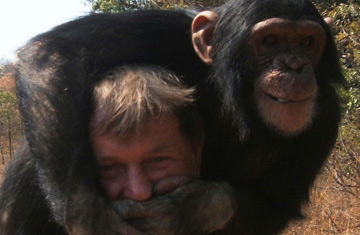
Karl Ammann's photography books are too gruesome for your average coffee table. A hog-tied crocodile strains against its ropes. Charbroiled monkeys, stiff and stacked like cordwood, grimace at the camera. A gorilla's severed head, propped against a bunch of green bananas, drains slowly into a saucepan.
The Swiss wildlife photographer is credited with almost single-handedly raising awareness of the issue of bush meat, the slaughter and consumption of wild — and often protected — animals. Frequently working undercover, using hidden cameras in jungle markets or triggering his shutter with infrared sensors laid along hunting paths, Ammann is very much an activist. For him a picture is a tool to pressure those with the authority to end these abuses. If an organization has passed a law, signed a treaty or set up a nature reserve, Ammann will publicize its failings. "My main mission," he says, "is to take away the excuse of 'I didn't know.'"
Once a hotelier at the InterContinental in Kinshasa, where he helped organize Muhammad Ali's Rumble in the Jungle, Ammann first became concerned about the killing of primates during a boat trip down the Congo River. The giant river steamer was "basically a floating meat market," he says. "The whole river economy was geared to supplying bush meat to the traders onboard." By then he had spent two decades illustrating Africa's beauty. As he began to scratch at the bush-meat trade, to troll the markets, to visit the logging camps, he started to wonder if he was contributing to the continent's despoilment. Were gorgeous pictures of wildlife promoting a false sense that all was well? In reality, everything was falling apart.
Ammann's projects often bring him into conflict with what he regards as the environmentalist establishment, which he accuses of applying Band-Aids to a dying patient. By trumpeting their successes and masking their failures, he argues, conservation groups give donors the illusion of progress. "We're not winning," says Ammann. "But the public is given the impression that if they write the check, the problem will be taken care of." For Ammann, the ultimate sin is to allow donors to say "I didn't know."
Stephan Faris is writing a book on the political, economic and strategic impacts of climate change